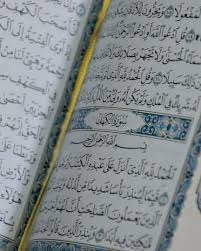Question: I have drops of urine that occur without my control during the day. Am I required to make wudu’ from these drops since they are not in my control?
Answer: In the Name of Allah, the Most Beneficent, the Most Merciful.
Imam Khalil in his Mukhtasar, and Imam Al-Dardir in his commentary on it, gives the rulings of incontinence as follows:
Breaking your wudu’ (hadath) is defined as a normal excrement- such as urine or feces, coming out of their normal exits- i.e the front and the back, in a state of health and normalcy. While incontinence is a normal excrement that comes out its normal exit, it is not in health. Incontinence is usually a medical issue stemming from other health issues.
The Maliki scholars divide incontinence (salas) into two categories:
- Infrequent incontinence
- Frequent incontinence
Frequent incontinence is defined as when your leakage occurs for more than half of the prayer time, which is defined as from Dhuhr time of today, until sunrise of tomorrow. So, you should estimate: how many hours within that time does my leakage occur? If it is for more than half, then you are categorized as someone with frequent incontinence. If it is less than half the time, then you are categorized as someone with infrequent incontinence.
A drop every hour:
For someone who has leakage of a drop every hour, they would fall under the category of infrequent incontinence. This is because there is enough separation between the drops that you have enough time to make wudu’ and pray before another drop occurs. This is the answer that our teacher Shaykh Ahmed Al-Maghili gave us, and he referred to Imam Illish’s gloss on Hashiyat Al-Dasouqi, but I was not able to pinpoint exactly which line he was referring to.
The Ruling:
For the infrequent: The ruling is that for one who has infrequent incontinence, their wudu’ is invalidated by the leakage, even though it is voluntary. This is because they would have reasonable belief that they can perform wudu’ and pray in a time of dryness before their incontinence starts back up again.
For the frequent: As for the one who has frequent incontinence, their wudu’ is not broken by the incontinence. However, their wudu’ would be broken by other nullifiers of wudu’. For example, if they had frequent incontinence in gas, then they would be forgiven from the gas, but they would have to remake their wudu’ if they urinated. Likewise, if they voluntarily passed gas, they would also need to remake their wudu’.
It should also be noted: if you know that a certain medicine or treatment will fix the problem, and you willingly refuse to do that treatment, then you are not excused.
Likewise, as long as it is not a difficulty, it is recommended for you to make wudu’ before every prayer. However, if there is hardship in doing that, then there is no problem.
And Allah knows best.
Written by Uthman Qureshi
Sources:
Hashiyat Al-Dasouqi: pg 114 vol. 1
(فَصْلٌ فِي نَوَاقِضِ الْوُضُوءِ) وَهِيَ ثَلَاثَةُ أَقْسَامٍ أَحْدَاثٌ وَأَسْبَابٌ وَغَيْرُهُمَا وَهُوَ الرِّدَّةُ وَالشَّكُّ وَابْتَدَأَ بِالْأَوَّلِ لِأَصَالَتِهِ فَقَالَ (نُقِضَ الْوُضُوءُ) أَيْ بَطَلَ حُكْمُهُ عَمَّا كَانَ يُبَاحُ بِهِ مِنْ صَلَاةٍ أَوْ غَيْرِهَا (بِحَدَثٍ) وَهُوَ مَا يَنْقُضُ بِنَفْسِهِ (وَهُوَ) أَيْ الْحَدَثُ (الْخَارِجُ الْمُعْتَادُ) مِنْ الْمَخْرَجِ الْمُعْتَادِ كَمَا يُشِيرُ إلَيْهِ بِقَوْلِهِ مِنْ مَخْرَجَيْهِ، فَإِنَّهُ مِنْ تَتِمَّةِ التَّعْرِيفِ (فِي الصِّحَّةِ) فَخَرَجَ بِالْخَارِجِ وَإِنْ كَانَ كَالْجِنْسِ الدَّاخِلُ مِنْ عُودٍ أَوْ أُصْبُعٍ
أَوْ حُقْنَةٍ فَلَا يَنْقُضُ وَمَغِيبُ حَشَفَةٍ، فَإِنَّهُ لَا يَنْقُضُ الْوُضُوءَ خَاصَّةً بَلْ يُوجِبُ مَا هُوَ أَعَمُّ وَالْقَرْقَرَةُ وَالْحَقْنُ الشَّدِيدَانِ خِلَافًا لِبَعْضِهِمْ وَخَرَجَ بِالْمُعْتَادِ مَا لَيْسَ مُعْتَادًا كَدَمٍ وَقَيْحٍ إنْ خَرَجَا خَالِصَيْنِ مِنْ الْأَذَى وَحَصًى وَدُودٍ كَمَا نَبَّهَ عَلَيْهِ بِقَوْلِهِ (لَا حَصًى) تَوَلَّدَ بِالْبَطْنِ (وَدُودٌ) وَإِنَّمَا خَصَّهُمَا بِالذِّكْرِ لِيُنَبِّهَ عَلَى حُكْمِ خُرُوجِهِمَا مُبْتَلَّيْنِ وَالْخِلَافُ فِيهِ بِقَوْلِهِ (وَلَوْ بِبِلَّةٍ) مِنْ بَوْلٍ أَوْ غَائِطٍ أَيْ وَلَوْ خَرَجَا مَعَ أَذًى وَلَوْ كَثُرَ لِتَبَعِيَّتِهِ لِمَا لَا نَقْضَ فِيهِ وَهُوَ الْحَصَى وَالدُّودُ وَسَيَأْتِي مُحْتَرَزُ الْمَخْرَجِ الْمُعْتَادِ فِي قَوْلِهِ مِنْ مَخْرَجَيْهِ فَشَمَلَ كَلَامُهُ اثْنَيْنِ مِنْ الدُّبُرِ وَهُمَا الْغَائِطُ وَالرِّيحُ وَسِتَّةٌ مِنْ الْقُبُلِ وَهِيَ الْبَوْلُ وَالْمَذْيُ وَالْوَدْيُ وَالْمَنِيُّ فِي بَعْضِ أَحْوَالِهِ وَالْهَادِي عَلَى مَا سَيَأْتِي لَهُ فِي الْحَيْضِ وَدَمُ الِاسْتِحَاضَةِ عَلَى تَفْصِيلٍ سَيَأْتِي فِي السَّلَسِ وَشَمَلَ خُرُوجَ مَنِيِّ الرَّجُلِ مِنْ فَرْجِ الْمَرْأَةِ إذَا دَخَلَ بِوَطْءٍ وَخَرَجَ بَعْدَ أَنْ اغْتَسَلَتْ لَا إنْ دَخَلَ بِلَا وَطْءٍ فَلَا يَنْقُضُ خُرُوجُهُ وَفِيهِ نَظَرٌ وَالْأَظْهَرُ
كَمَا قَالَ شَيْخُنَا النَّقْضُ وَخَرَجَ بِقَوْلِهِ فِي الصِّحَّةِ مَا إذَا خَرَجَ فِي حَالِ الْمَرَضِ أَيْ خُرُوجُهُ عَلَى وَجْهِ السَّلَسِ، فَإِنَّ فِيهِ تَفْصِيلًا أَشَارَ لَهُ بِقَوْلِهِ
(وَ) نُقِضَ (بِسَلَسٍ فَارَقَ أَكْثَرَ) الزَّمَانِ وَلَازَمَ أَقَلُّهُ، فَإِنْ لَازَمَ النِّصْفَ وَأَوْلَى الْجُلُّ أَوْ الْكُلُّ فَلَا يَنْقُضُ (كَسَلَسِ مَذْيٍ) لِطُولِ عُزُوبَةٍ أَوْ مَرَضٍ فَيَخْرُجُ مِنْ غَيْرِ تَذَكُّرٍ أَوْ تَفَكُّرٍ، فَإِنَّهُ يَنْقُضُ مُطْلَقًا حَيْثُ (قَدَرَ عَلَى رَفْعِهِ) بِتَدَاوٍ أَوْ صَوْمٍ أَوْ تَزَوُّجٍ أَوْ تَسَرٍّ وَيُغْتَفَرُ لَهُ زَمَنُ التَّدَاوِي وَالتَّزَوُّجِ وَالتَّسَرِّي، فَإِنْ لَمْ يَقْدِرْ عَلَى رَفْعِهِ بِمَا ذُكِرَ فَهُوَ كَغَيْرِهِ مِنْ الْأَسْلَاسِ فِي التَّفْصِيلِ الْمُتَقَدِّمِ
فَيَجْرِي فِيهِ الْأَقْسَامُ الْأَرْبَعَةُ وَلَا مَفْهُومَ لِمَذْيٍ فَلَوْ حَذَفَهُ لَكَانَ أَخَصْرَ وَأَشْمَلَ إذْ كُلُّ سَلَسٍ قَدَرَ عَلَى رَفْعِهِ نَقَضَ وَإِلَّا فَالْأَقْسَامُ الْأَرْبَعَةُ
(وَنُدِبَ) الْوُضُوءُ (إنْ لَازَمَ) السَّلَسُ (أَكْثَرَ) الزَّمَنِ وَأَوْلَى نِصْفُهُ لَا إنْ عَمَّهُ وَمَحَلُّ النَّدْبِ فِي مُلَازَمَةِ الْأَكْثَرِ إنْ لَمْ يَشُقَّ (لَا إنْ شَقَّ) الْوُضُوءُ بِبَرْدٍ وَنَحْوِهِ فَلَا يُنْدَبُ فَقَوْلُهُ وَنُدِبَ إلَخْ تَفْصِيلٌ فِي مَفْهُومِ قَوْلِهِ فَارَقَ أَكْثَرَ (وَفِي اعْتِبَارِ الْمُلَازَمَةِ) مِنْ دَوَامٍ وَكَثْرَةٍ وَمُسَاوَاةٍ وَقِلَّةٍ (فِي وَقْتِ الصَّلَاةِ) خَاصَّةً وَهُوَ مِنْ الزَّوَالِ إلَى طُلُوعِ الشَّمْسِ مِنْ الْيَوْمِ الثَّانِي (أَوْ) اعْتِبَارُهَا (مُطْلَقًا) لَا بِقَيْدِ وَقْتِ الصَّلَاةِ فَيُعْتَبَرُ حَتَّى مِنْ الطُّلُوعِ إلَى الزَّوَالِ (تَرَدُّدٌ) لِلْمُتَأَخِّرِينَ (مِنْ مَخْرَجَيْهِ) مُتَعَلِّقٌ بِالْخَارِجِ وَالضَّمِيرُ







